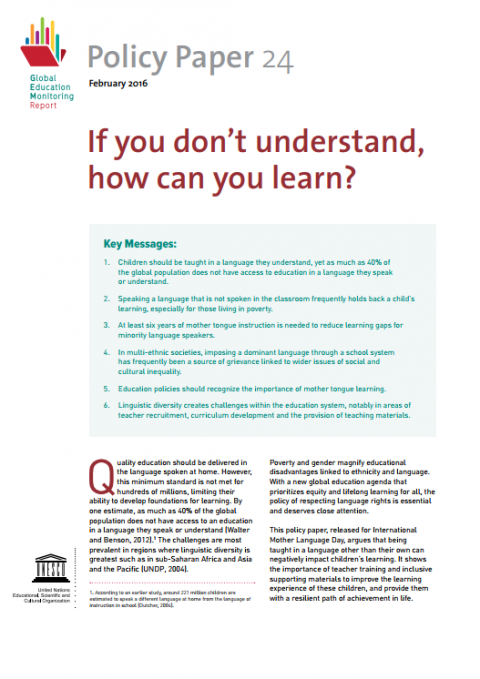
GCED Basic Search Form
Quick Search
Usted está aquí
Resources

Key Messages:
1. Children should be taught in a language they understand, yet as much as 40% of the global population does not have access to education in a language they speak or understand.
2. Speaking a language that is not spoken in the classroom frequently holds back a child’s learning, especially for those living in poverty.
3. At least six years of mother tongue instruction is needed to reduce learning gaps for minority language speakers.
4. In multi-ethnic societies, imposing a dominant language through a school system has frequently been a source of grievance linked to wider issues of social and cultural inequality.
5. Education policies should recognize the importance of mother tongue learning. 6. Linguistic diversity creates challenges within the education system, notably in areas of teacher recruitment, curriculum development and the provision of teaching materials.
